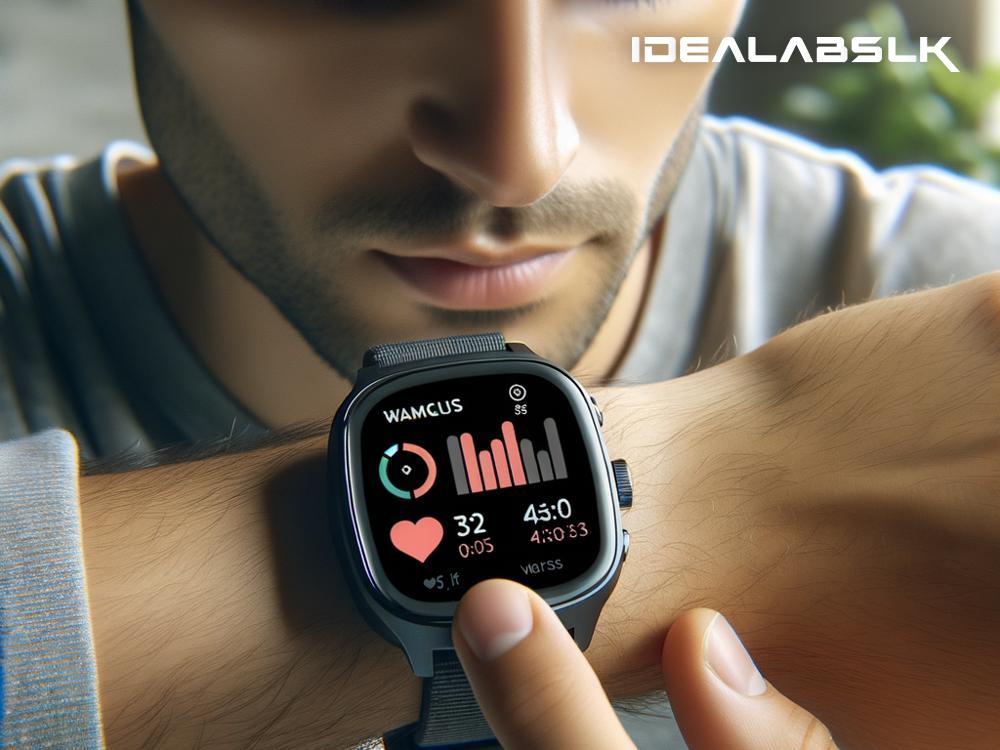Title: Revolutionizing Your Fitness Journey: How AI in Wearable Gadgets Brings Adaptive Goal Setting to Your Wrist
In recent years, artificial intelligence (AI) has been sneaking into almost every facet of our daily lives, transforming the way we work, communicate, and stay healthy. One of the most exciting areas where AI is making a significant impact is in the fitness industry, especially within the realm of wearable gadgets. These smart devices, ranging from wristbands to smartwatches, are revolutionizing the way we approach our fitness goals, making them more adaptive, personalized, and achievable. Let's dive into how AI in wearable fitness gadgets is changing the game for fitness enthusiasts around the globe.
Understanding AI in Wearables
First things first: what exactly does it mean when we say a fitness gadget is powered by AI? In essence, these devices use advanced algorithms to learn about you — your physical activity levels, your heart rate patterns, your sleeping habits, and so much more. By analyzing this data over time, AI can identify trends, predict outcomes, and provide highly personalized feedback and recommendations. It's like having a personal trainer and a health coach, all wrapped up into one device on your wrist.
Adaptive Goal Setting: The Core of AI Fitness Gadgets
One of the standout features of AI-driven fitness wearables is their ability to help users set and adjust their fitness goals dynamically. Traditional fitness trackers required users to set their own goals, often without much guidance. However, with AI, your gadget learns from your daily activity and continuously adapts your goals to push you a little further, but not too far out of reach. This approach ensures that you're constantly challenged without feeling overwhelmed, encouraging consistent progress over time.
How It Works: From Data to Personal Training
Imagine going for a run every morning. An AI-enabled wearable gadget doesn't just track your distance and time; it also pays attention to your pace, your heart rate fluctuations, and even how well you recover afterwards. Over time, it begins to understand your fitness level and habits intimately. Perhaps it notices you're consistently performing better than your set goals. In response, the device might suggest increasing your daily running distance or introduce interval training sessions to up the ante, ensuring your fitness routine continues to evolve with you.
The Magic of Motivation and Feedback
One challenge many of us face on our fitness journey is staying motivated. This is where AI in wearable gadgets truly shines. By providing real-time feedback and celebratory notifications for achievements, it taps into our innate desire for instant gratification. Moreover, by adjusting your goals based on your current performance, AI ensures that your objectives are always within realistic reach, reducing feelings of frustration or discouragement. This smart encouragement helps maintain motivation and fosters a positive attitude towards fitness.
Overcoming Plateaus with AI
Fitness plateaus, periods where you see little to no progress, can be disheartening. AI wearables tackle this issue head-on by continuously analyzing your data and suggesting changes to your routine before you hit a plateau. Whether it's recommending new exercises, altering your workout intensity, or suggesting rest days to avoid burnout, AI keeps your fitness journey on an upward trajectory.
Beyond Physical Fitness: The Holistic Approach
AI in wearable gadgets isn't limited to physical fitness alone. Many devices also monitor sleep patterns, stress levels, and even nutrition, offering suggestions to improve your overall well-being. This holistic approach ensures that your fitness goals are not just about the number of steps you take or the calories you burn but about enhancing your total health.
Final Thoughts
The integration of AI in wearable fitness gadgets represents a significant leap forward in how we approach personal fitness. By providing adaptive, personalized goal setting, these devices offer a smarter, more efficient way to pursue our fitness aspirations. As technology continues to advance, we can expect these gadgets to become even more intuitive, further blurring the lines between technology and personal coaching. For anyone looking to optimize their fitness journey, embracing AI-driven wearables could be the game-changer they need.
In conclusion, as we strap these intelligent devices to our wrists and step out the door, we're not just tracking our fitness; we're engaging with a personal coach that learns, adapts, and grows with us. The future of fitness is here, and it's incredibly smart.

